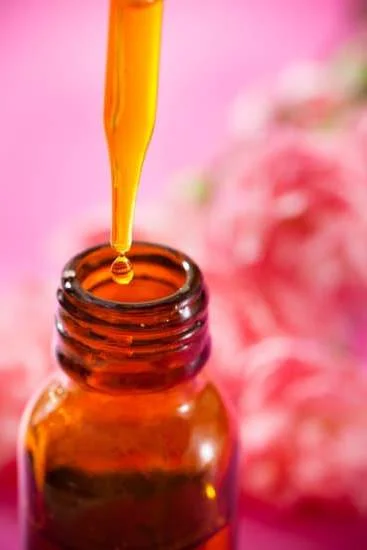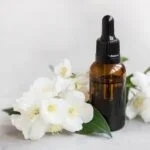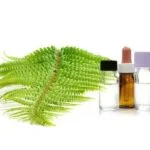Aromatherapy is a popular holistic therapy that has gained significant attention for its potential health benefits. It involves the use of aromatic essential oils extracted from plants to promote both physical and psychological well-being. However, one might wonder, does aromatherapy work if you can’t smell? This intriguing question forms the basis of our exploration in this article.
The sense of smell plays a crucial role in our overall experience of aromatherapy. It is through the inhalation of these essential oils that their therapeutic properties are believed to take effect. So, what happens when someone is unable to smell? Are they missing out on the potential benefits of aromatherapy?
In this article, we delve into the fascinating connection between smell and aromatherapy. We aim to uncover whether individuals who can’t smell can still reap the rewards of this ancient practice.
Additionally, we will explore alternative methods that allow individuals with smell impairment to experience the healing powers of aromatherapy. Through scientific research, personal experiences, and expert insights, we aim to provide a comprehensive understanding of how aromatherapy can be beneficial for those who cannot rely on their sense of smell.
Join us as we embark on this captivating journey into the world of smells and essential oils, uncovering how aromatherapy transcends beyond mere fragrance and impacts our well-being in unexpected ways.
Understanding the Science of Aromatherapy
Aromatherapy is a holistic healing practice that utilizes the scents of essential oils to promote physical and emotional well-being. The science behind aromatherapy lies in the powerful effects that certain scents have on our brains and bodies. When inhaled, these scents stimulate the olfactory system, which is directly linked to the limbic system – the part of our brain responsible for emotions, memories, and behavior.
By understanding this connection between smell and the brain, we can begin to comprehend the benefits of aromatherapy. Research has shown that aromatherapy can have a range of positive effects on our well-being. For example, certain essential oils like lavender have been found to promote relaxation and reduce anxiety. Peppermint oil, on the other hand, has invigorating properties that can help with mental alertness and focus.
In addition to its emotional benefits, aromatherapy has also been used for its physical healing properties. Essential oils like eucalyptus and tea tree oil have natural antimicrobial properties, making them effective in supporting a healthy immune system. Aromatherapy can also help reduce pain and inflammation through oils such as chamomile or ginger.
Using HTML ordered list:
- Aromatherapy stimulates the olfactory system associated with emotions and memories.
- Essential oils like lavender reduce anxiety.
- Oils like peppermint boost mental alertness.
- Eucalyptus and tea tree oil support a healthy immune system.
- Chamomile or ginger can help reduce pain
Overall, understanding the science behind aromatherapy helps us appreciate its many benefits for both physical and emotional well-being. Whether it’s promoting relaxation, boosting mental clarity, or supporting our body’s natural defenses, aromatherapy offers a wide range of therapeutic uses that go beyond just smelling essential oils. In the next section, we will explore the common misconception that smelling essential oils is essential for aromatherapy and discover alternative methods for reaping the benefits.
Debunking the Common Misconception
Aromatherapy is a well-known holistic practice that utilizes the fragrances of essential oils to promote wellness and relaxation. The common belief is that in order to experience the benefits of aromatherapy, one must be able to smell the essential oils. However, this notion is a misconception, as there are alternative methods for reaping the benefits of aromatherapy for individuals who are unable to smell.
While smell plays a significant role in traditional aromatherapy, it is not the only way to access its benefits. In fact, research has shown that even without a sense of smell, individuals can still benefit from aromatherapy through alternate methods such as immersion therapy, topical application, and inhalation techniques.
One effective method for those unable to smell is immersion therapy. This involves using essential oils in baths, soaks, and compresses. When essential oils are added to warm water, they can be absorbed through the skin and provide therapeutic effects. For example, lavender oil added to a bath can help promote relaxation and alleviate stress.
Another method is topical application which harnesses the power of aromatherapy through diluted essential oil topical treatments. Essential oils such as peppermint or eucalyptus can be diluted with carrier oils like coconut or jojoba oil and applied directly to the skin. The body heat helps evaporate these oils which can then be absorbed into the bloodstream through the pores.
Inhalation techniques are also effective for individuals unable to smell. Aromatherapy inhalers or diffusers can be used to release essential oil molecules into the air which can then be inhaled by individuals regardless of their ability to detect scent. This allows them to reap the therapeutic benefits of aromatherapy without relying on their sense of smell.
| Method | Description |
|---|---|
| Immersion Therapy | Using essential oils in baths, soaks, and compresses |
| Topical Application | Harnessing the power of aromatherapy through diluted essential oil topical treatments |
| Inhalation Techniques | Unveiling effective aromatherapy methods for those unable to smell |
Alternative Methods for Reaping the Benefits
While smell is often considered a vital aspect of aromatherapy, it is important to note that individuals who cannot smell are not excluded from experiencing its benefits. There are alternative methods that allow those with smell impairments to still reap the rewards of aromatherapy. This section will explore some of these non-smell based techniques, providing individuals with different options to incorporate aromatherapy into their lives.
Immersion Therapy: Using Essential Oils in Baths, Soaks, and Compresses
One popular method for those unable to smell is immersion therapy, which involves incorporating essential oils into baths, foot soaks, or compresses. When essential oils are added to a warm bath or soak, they can be absorbed through the skin and enter the body’s bloodstream.
This allows for the therapeutic properties of the oils to still have an effect on the individual despite not being able to smell them directly. Additionally, compresses soaked in diluted essential oils can be applied to specific areas of the body for targeted relief.
Topical Application: Harnessing the Power of Aromatherapy through Diluted Essential Oil Topical Treatments
Another effective method for individuals unable to smell is topical application. Diluted essential oils can be applied directly to the skin, allowing for absorption and activation of their beneficial properties. Massage oils or lotions infused with essential oils provide a dual benefit by combining touch therapy with aromatherapy. The physical contact during massage or self-application stimulates blood flow and helps promote relaxation, while the essential oils work their magic internally.
Inhalation Techniques: Unveiling Effective Aromatherapy Methods for Those Unable to Smell
Interestingly, even though individuals may not have a sense of smell, they can still benefit from inhalation techniques in aromatherapy. Inhalation involves the use of essential oils through methods such as diffusers, steam inhalation, or even simply opening a bottle and taking deep breaths. While the individual may not experience the typical scent associated with the oils, the aromatic molecules can still interact with their respiratory system and be absorbed into their bloodstream, providing therapeutic benefits.
By exploring these alternative methods for utilizing aromatherapy without relying on smell alone, individuals who cannot smell are able to embrace and experience the benefits of this holistic practice. Whether through immersion therapy, topical application, or inhalation techniques, non-smell based aromatherapy opens up a new world of possibilities for those with smell impairments to enhance their well-being and find comfort and relief.
Immersion Therapy
One of the alternative methods for reaping the benefits of aromatherapy without relying on the sense of smell is through immersion therapy. This technique involves using essential oils in baths, soaks, and compresses to allow the skin to absorb their therapeutic properties. While inhalation is typically the primary method associated with aromatherapy, immersion therapy offers a unique way for individuals who can’t smell to still experience the benefits.
- Baths: One way to incorporate immersion therapy into your aromatherapy routine is by adding essential oils to your bathwater. You can simply add a few drops of your chosen essential oil directly into warm or hot water before getting into the bath.
The heat from the water will help release the aroma from the oils into the air around you, creating a relaxing and soothing environment. Additionally, as you soak in the water, your skin will absorb some of the essential oil’s beneficial compounds. - Soaks: Similar to baths, soaks involve immersing parts of your body in a container filled with water infused with essential oils. This technique is particularly useful for targeting specific areas that may be experiencing pain or discomfort.
For example, if you have sore muscles or joints, you can create a soak by filling a basin with warm water and adding a few drops of an anti-inflammatory essential oil such as lavender or peppermint. Submerging the affected area in this mixture allows for direct absorption of the oil’s properties. - Compresses: Another way to utilize immersion therapy is through compresses. Compresses involve soaking a cloth or towel in a solution containing diluted essential oils and applying it to specific areas of the body. To create a compress, dilute several drops of your chosen essential oil in warm water and saturate a clean cloth with this mixture.
Then apply it directly to areas where relief is desired, such as the forehead for headache relief or the abdomen for menstrual cramps. The heat and dampness from the compress help facilitate the absorption of the essential oil’s therapeutic qualities into the skin.
Incorporating immersion therapy into your aromatherapy routine can be a beneficial way to experience the effects of essential oils even if you can’t smell. By using baths, soaks, and compresses, individuals who are unable to detect scents can still enjoy the benefits of aromatherapy through direct absorption of essential oil compounds into their skin. Immersion therapy offers a versatile and accessible method for reaping the advantages of aromatherapy beyond traditional inhalation techniques.
Topical Application
What is Topical Application?
Topical application refers to the use of essential oils in diluted form directly on the skin. This method allows for the absorption of the therapeutic properties of the oils through the skin, allowing them to enter the bloodstream and provide various benefits. While most commonly associated with massage therapy, topical application can also include methods such as compresses, baths, and soaks.
The Benefits and Effectiveness of Topical Application
Topical application of essential oils has been found to be highly effective in providing the benefits associated with aromatherapy, even for individuals who cannot smell. Essential oils contain powerful compounds that have specific healing properties. When applied topically, these compounds interact with the body’s chemistry and can promote relaxation, pain relief, and general well-being.
One key advantage of topical application is its ability to target specific areas of discomfort or tension in the body. For example, a diluted essential oil blend can be massaged into sore muscles or joints to ease pain and inflammation. Additionally, topical application allows for a more localized effect compared to inhalation methods.
It is important to note that when using essential oils topically, they must be properly diluted with a carrier oil such as jojoba or almond oil to prevent skin irritation or sensitivity. A common dilution ratio is 2-5 drops of essential oil per teaspoon of carrier oil. It is recommended to do a patch test on a small area of skin before applying the diluted mixture more extensively.
Recommended Techniques for Topical Application
There are several techniques for utilizing topical application in aromatherapy. One widely practiced method is massage therapy, where a practitioner uses gentle strokes and pressure to apply the diluted essential oil blend onto the skin. This technique not only allows for direct absorption but also promotes relaxation and stress reduction through touch.
Another effective technique is using compresses. A compress involves soaking a cloth in a solution of diluted essential oils and warm water, then applying it to the affected area. This method is especially useful for relieving muscle pain, headaches, or joint inflammation.
Lastly, adding a few drops of diluted essential oils to baths or foot soaks can provide a relaxing and rejuvenating experience. The warm water helps to increase the absorption of the oils into the body, allowing for a full-body therapeutic effect.
Overall, topical application offers individuals who cannot smell the opportunity to experience the benefits of aromatherapy by harnessing the power of essential oils directly on their skin. With proper dilution and technique, this method can be safe and effective in providing relief and promoting holistic well-being.
Inhalation Techniques
Aromatherapy is often associated with the sense of smell, as the inhalation of essential oils can have a profound impact on emotions and well-being. However, what many people may not know is that aromatherapy can still be effective for individuals who are unable to smell. In this section, we will explore some innovative and alternative inhalation techniques that allow those unable to smell to experience the benefits of aromatherapy.
One technique that has shown promising results is called “olfactory training.” This method involves repeatedly smelling a series of essential oils over a period of time to stimulate the olfactory receptors and potentially improve sense of smell.
Although individuals without a sense of smell may not notice immediate changes, studies have shown that olfactory training can lead to improvements in olfactory function in some cases. This technique offers hope for those who have lost their sense of smell due to congenital anosmia, head trauma, or other conditions.
Another effective inhalation technique for individuals unable to smell is through the use of nasal spraying or nasal irrigation. By using a nasal spray or irrigator specifically designed for aromatherapy purposes, individuals can deliver essential oil molecules directly into the nasal cavity, bypassing the need for an intact sense of smell. This method allows the therapeutic properties of essential oils to interact with the mucous membranes and potentially provide relief from various respiratory conditions like sinusitis or allergies.
Furthermore, technological advancements have also contributed to enhancing aroma perception for those with smell impairment. For example, devices known as “scent therapy machines” can release scents into the air in controlled amounts and durations, allowing individuals without a sense of smell to experience different aromas throughout their environment. These machines often come with preloaded scent cartridges or allow users to insert their own preferred essential oils.
Inhaling aromatherapy blends through methods other than traditional sniffing can bring relief and therapeutic benefits to individuals unable to smell. By embracing these alternative techniques, those with smell impairment can still experience the many advantages of aromatherapy in their daily lives.
| Alternative Inhalation Techniques | Description |
|---|---|
| Olfactory training | A technique that involves repeatedly smelling a series of essential oils over time to stimulate olfactory receptors and potentially improve sense of smell. |
| Nasal spraying or nasal irrigation | The use of specialized aromatherapy nasal sprays or irrigators to deliver essential oil molecules directly into the nasal cavity, providing potential relief from respiratory conditions. |
| Scent therapy machines | Technological devices that release controlled amounts and durations of scents into the air, allowing individuals without a sense of smell to experience different aromas throughout their environment. |
Harness the Power of Memory and Emotion
The Role of Memory in Aromatherapy
One of the key ways in which aromatherapy can still be effective for individuals unable to smell is through the power of memory. Our sense of smell is closely linked to our memories and emotions. When we encounter a certain scent, it has the ability to trigger vivid memories or evoke specific emotions tied to those memories. This phenomenon is known as odor-evoked autobiographical memory.
For individuals who are unable to smell, they may still have memories associated with certain scents that they were once able to experience. By using aromatherapy techniques such as diffusing essential oils or utilizing other non-smell based methods, these individuals can still engage with scents that may bring back comforting or positive memories.
For example, someone who used to find calm and relaxation in the scent of lavender may still benefit from the use of lavender essential oil in other forms, even if they cannot directly smell it.
Emotional Impact of Aromatherapy
In addition to triggering memories, aromatherapy also has a profound impact on our emotional well-being. Essential oils have been studied for their ability to affect mood and emotions, regardless of whether we can consciously perceive their aroma or not. This means that individuals who cannot smell can still benefit from the emotional effects of aromatherapy.
Certain essential oils have been found to have uplifting properties that can help combat feelings of sadness or anxiety. Despite not being able to directly smell these oils, individuals can still experience these benefits by utilizing alternative methods such as bath soaks or topical treatments. The act of engaging with the scent and applying it in a mindful manner can help create a sensory and emotional connection between the individual and the essence of the oil.
Expanding Research on Non-Smell Based Aromatherapy for Psychological Benefits
While there is already some research exploring the psychological impact of aromatherapy on individuals unable to smell, further studies are needed to fully understand and maximize the potential benefits. Researchers are investigating methods such as diffusion through the use of ultrasonic devices that release micro-particles of essential oils into the air, allowing individuals to reap the benefits without needing to rely on their sense of smell.
Additionally, advancements in technology offer promising avenues for non-smell based aromatherapy techniques. For example, virtual reality systems can simulate scents and enhance immersion therapy experiences for individuals with smell impairments. These emerging technologies have the potential to revolutionize the field of aromatherapy and make it more accessible to a wider range of individuals.
By harnessing the power of memory and emotion, aromatherapy can still prove beneficial for individuals unable to smell. The psychological impact of aromatherapy extends beyond the physical act of smelling and can evoke memories and emotions that contribute to overall well-being. As research continues to advance and technology evolves, more opportunities arise for those with smell impairments to experience the benefits of this ancient practice.
The Future of Aromatherapy
The sense of smell plays a crucial role in aromatherapy, as it allows individuals to experience the soothing and healing effects of essential oils. However, what if someone is unable to smell? Can they still benefit from aromatherapy? In this section, we will explore the future of aromatherapy and technology advancements that can help those with smell impairment access the benefits of this practice.
Advancements in technology have opened up new possibilities for individuals who are unable to smell to participate in aromatherapy. One such advancement is the development of scent recognition technologies.
These technologies use sensors and algorithms to analyze the chemical components of essential oils and recreate their scents in a way that can be perceived by other senses, such as touch or sight. This allows individuals with smell impairment to still experience the therapeutic effects of essential oils without relying on their sense of smell.
Another promising development in the field of technology-assisted aromatherapy is virtual reality (VR). VR headsets can create immersive environments where individuals can visually and audibly experience different scents through a combination of visual cues and sound effects. By simulating different smells, VR technology can provide an alternative sensory experience that mimics the benefits of traditional aromatherapy techniques.
Additionally, wearable devices have also entered the realm of scent stimulation for those with smell impairment. These devices use microencapsulation technology to release fragrance throughout the day, allowing individuals to carry the pleasant scents with them wherever they go. Some prototypes even utilize smart devices that sync with smartphones or other electronic devices to manage and control scent delivery based on individual preferences.
As technology continues to advance, more innovative solutions are likely to emerge, making aromatherapy accessible to everyone regardless of their ability to smell. These developments hold great promise for individuals with smell impairment who seek to incorporate aromatherapy into their well-being routines.
| Technology Advancement | Description |
|---|---|
| Scent Recognition Technologies | Use sensors and algorithms to recreate scents of essential oils that can be perceived through other senses. |
| Virtual Reality (VR) | Create immersive environments where individuals can visually and audibly experience different scents. |
| Wearable Devices | Utilize microencapsulation technology to release fragrances throughout the day, allowing individuals with smell impairment to carry pleasant scents with them. |
Personal Experiences
Aromatherapy is often associated with the ability to experience pleasant smells and scents, with many assuming that the sense of smell is essential for its effectiveness. However, there are real-life testimonies from individuals unable to smell who have discovered the numerous benefits of aromatherapy. These personal experiences challenge the common misconception that smelling essential oils is necessary for experiencing its therapeutic effects.
One alternative method that individuals without a sense of smell have found beneficial is immersion therapy. This involves using essential oils in baths, soaks, and compresses.
While they may not be able to detect the fragrance directly, they can still enjoy the relaxation and rejuvenation provided by adding essential oils to their self-care routines. By immersing themselves in diluted essential oil-infused water or applying compresses soaked in these oils, individuals without a sense of smell are able to experience the physical benefits of aromatherapy on their skin and muscles.
Another technique that has proven effective for those unable to smell is topical application of diluted essential oils. By harnessing the power of absorption through the skin, individuals can still benefit from the therapeutic properties of aromatherapy. Diluted essential oils can be applied directly to certain areas of the body or mixed with carrier oils for massage therapy. Despite not being able to perceive the scent, these individuals report improvements in their overall well-being and relief from various ailments.
In addition to immersion therapy and topical application, inhalation techniques also offer a way for people without a sense of smell to experience aromatherapy’s benefits. Inhalation methods include using diffusers or nebulizers that disperse micro-particles of essential oils into the air. Though these individuals may not perceive the specific scent, inhaling these particles allows them to enjoy the potential physiological effects that aromatherapy-oils/” target=”_blank” rel=”follow noopener”>aromatherapy provides, such as relaxation, stress reduction, and improved sleep quality.
These personal experiences highlight the fact that aromatherapy can be effective for individuals unable to smell. While they may not experience the same olfactory sensations as those with intact sense of smell, they still derive physical and psychological benefits from these alternative methods. By embracing a holistic approach to aromatherapy and exploring non-smell based techniques, individuals without a sense of smell can still enjoy the therapeutic effects offered by essential oils.
Conclusion
In conclusion, it is evident that aromatherapy can be beneficial even for those who are unable to smell. By exploring alternative methods such as immersion therapy, topical application, and inhalation techniques, individuals with smell impairment can still experience the therapeutic effects of essential oils. These methods allow for the absorption of essential oil compounds through the skin or respiratory system, bypassing the need for olfactory stimulation.
Additionally, it has been found that aromatherapy can have a profound impact on memory and emotion. Even without the ability to smell, individuals can still tap into these psychological benefits by associating specific essential oils with positive experiences or using visual cues to trigger memories and emotions. This highlights the powerful connection between aromatherapy and our overall well-being.
Furthermore, advancements in technology hold promise for individuals with smell impairment to fully engage in aromatherapy. Innovations such as virtual reality or wearable devices that simulate smells could provide a more immersive experience and enhance the therapeutic effects of aromatherapy. As research continues in this field, we can look forward to inclusive approaches that cater to individuals with all types of sensory abilities.
Frequently Asked Questions
How do you regain sense of smell with essential oils?
Essential oils can be used to potentially regain a sense of smell due to their strong aromas and therapeutic properties. Inhaling certain essential oils, such as eucalyptus or peppermint, may help stimulate the olfactory system and awaken the sense of smell. One way to do this is by adding a few drops of essential oil to a diffuser or humidifier and allowing the scent to fill the room.
Another method is by diluting essential oils in carrier oils and applying them topically near the nose or on pulse points. These methods can help expose the olfactory receptors to the aromatic molecules present in essential oils, potentially aiding in regaining one’s sense of smell over time.
How can I regain my sense of smell?
Regaining a sense of smell can sometimes be a challenging process, but there are several techniques that may help. One approach is by practicing olfactory training, which involves exposing yourself to different scents on a daily basis. This can be done by sniffing commonly used items such as coffee beans, citrus fruits, or various herbs and spices.
Additionally, maintaining good nasal hygiene, such as using saline nasal rinses or steam inhalation with essential oils like eucalyptus or tea tree oil, may also improve your ability to smell. It’s important to consult with a healthcare professional if you’ve experienced prolonged loss of smell, as they can provide further guidance based on your specific situation.
Why can’t I smell my essential oils?
There could be various reasons why you might not be able to smell your essential oils despite their strong aromas. One possibility is that you have acquired anosmia, which refers to the loss of ability to detect odors. This condition can have various causes such as nasal congestion from allergies or sinusitis, head trauma, certain medications, or even neurodegenerative diseases like Parkinson’s disease.
In some cases, reduced sensitivity to smells may also result from exposure to certain chemicals or environmental factors that temporarily affect the olfactory system. If you’re concerned about your inability to smell essential oils, it is advisable to seek medical advice in order to determine the underlying cause and explore appropriate treatment options.

Are you looking for a natural way to improve your health and wellbeing?
If so, aromatherapy may be the answer for you.





